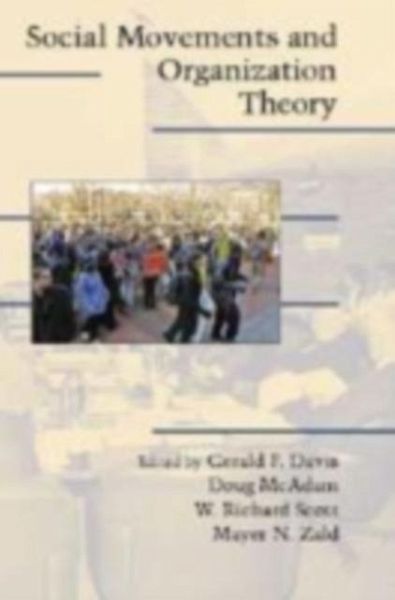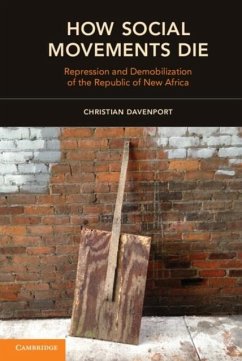
Social Movements and Organization Theory (eBook, PDF)
Versandkostenfrei!
Sofort per Download lieferbar
32,95 €
inkl. MwSt.
Weitere Ausgaben:

PAYBACK Punkte
16 °P sammeln!
Although the fields of organization theory and social movement theory have long been viewed as belonging to different worlds, recent events have intervened, reminding us that organizations are becoming more movement-like - more volatile and politicized - while movements are more likely to borrow strategies from organizations. Organization theory and social movement theory are two of the most vibrant areas within the social sciences. This collection of original essays and studies both calls for a closer connection between these fields and demonstrates the value of this interchange. Three introd...
Although the fields of organization theory and social movement theory have long been viewed as belonging to different worlds, recent events have intervened, reminding us that organizations are becoming more movement-like - more volatile and politicized - while movements are more likely to borrow strategies from organizations. Organization theory and social movement theory are two of the most vibrant areas within the social sciences. This collection of original essays and studies both calls for a closer connection between these fields and demonstrates the value of this interchange. Three introductory, programmatic essays by leading scholars in the two fields are followed by eight empirical studies that directly illustrate the benefits of this type of cross-pollination. The studies variously examine the processes by which movements become organized and the role of movement processes within and among organizations. The topics covered range from globalization and transnational social movement organizations to community recycling programs.
Dieser Download kann aus rechtlichen Gründen nur mit Rechnungsadresse in A, B, BG, CY, CZ, D, DK, EW, E, FIN, F, GR, HR, H, IRL, I, LT, L, LR, M, NL, PL, P, R, S, SLO, SK ausgeliefert werden.













